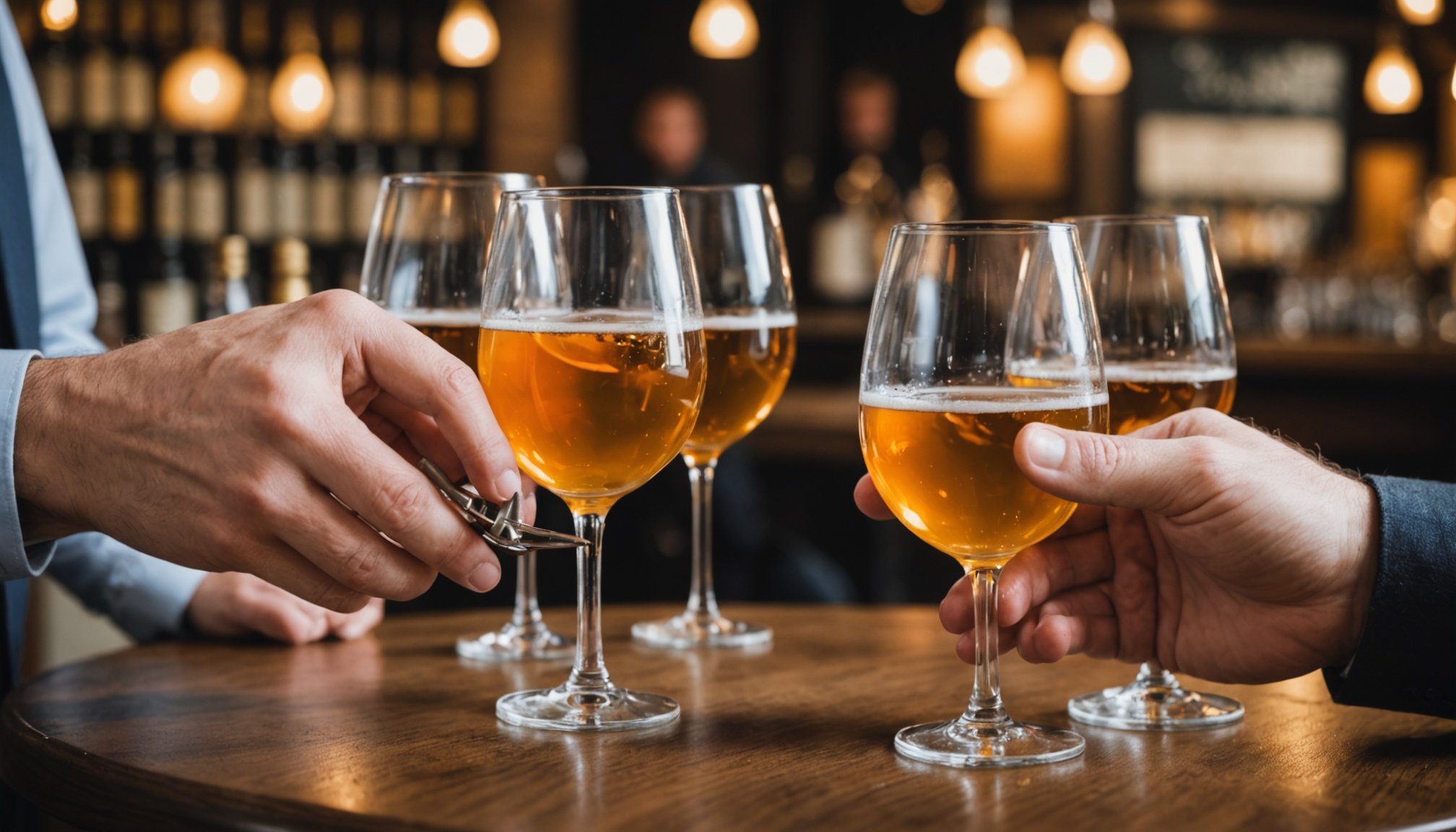Understanding the Alcohol Licensing Process in the UK
Navigating the alcohol licensing UK system is crucial for businesses aiming to serve or sell alcoholic beverages. Different types of alcohol licenses exist to suit various business needs, such as premises licences for bars, pubs, and restaurants or personal licences for individuals in charge of alcohol sales. Understanding the specific licensing process is essential for ensuring compliance and operational success.
Key stakeholders in this process include local councils and regulatory bodies, which assess applications and enforce compliance. Engaging with these entities early in the process can provide valuable insights into local regulations and streamline the application procedures. It’s vital for businesses to adhere to area-specific laws, as variations exist across different regions.
In the same genre : Mastering legal tactics for outsourcing it services from the uk to global markets beyond the eu
Moreover, being well-informed about local regulations and compliance requirements helps businesses avoid costly mistakes. Identifying specific business requirements and matching them with the appropriate license type is a critical first step. Preparation and awareness can significantly ease the entire licensing process and pave the way for a successful business venture.
Step-by-Step Guide to Applying for an Alcohol License
Navigating the alcohol license application process begins with thorough initial research and preparation. Identifying the appropriate type of license needed is paramount, as it aligns with specific business operations. This step involves understanding your establishment’s unique needs, such as whether a premises licence or a personal licence is more suitable.
Topic to read : Mastering the uk joint venture breakup: your ultimate legal guide
Ensuring necessary documentation is in order is crucial. Gather all supporting materials, including proof of identity and detailed floor plans of your premises, to avoid any application hiccups. It’s beneficial to engage with local authorities early on, as they can provide valuable guidance and ensure you meet area-specific regulations.
Filling out the application form accurately is pivotal in the application process. Attention to detail in providing comprehensive information and evidence can significantly influence the outcome. Once completed, submit the application along with the required fees, typically determined by the premises’ size and location.
The review process requires patience, as local councils meticulously assess each application. Understanding typical timeframes and maintaining open communication with authorities can alleviate anxiety during this period. Being responsive and proactive helps facilitate a smooth approval process.
Legal Requirements and Costs Associated with Licensing
Securing an alcohol license in the UK demands adherence to specific legal requirements. Applicants must ensure compliance with these obligations to avoid potential legal pitfalls. Initially, applicants must confirm they meet criteria like being over a specified age and possessing a recognised qualification that demonstrates understanding of alcohol law.
Understanding the fees involved in both the application and ongoing renewal is crucial for budgeting. Fees vary based on factors such as the size of the venue and its location within certain rate bands. These fees are part of the licensing costs that businesses need to factor into their financial planning.
Attention should be drawn to potential hidden costs that may arise. These can include expenses related to public notices or consulting with legal professionals to ensure applications meet all regulatory standards. Such financial considerations can impact the overall cost, making it essential for businesses to plan accordingly. Ensuring comprehensive knowledge of all associated costs and legal requirements will not only ensure compliance but also help in efficient financial management.
Common Pitfalls to Avoid When Securing an Alcohol License
When navigating the licensing process for an alcohol license in the UK, several common pitfalls can derail your efforts. One frequent mistake is neglecting to understand area-specific regulations. Each region may have its unique set of rules and requirements that, if overlooked, can lead to application errors or delays.
Another prevalent issue is incomplete documentation. Missing necessary paperwork or improperly filled forms are typical application errors that can result in setbacks or rejections. Ensuring that all documentation is detailed and accurately completed is crucial in avoiding these errors.
Moreover, overlooking compliance issues can have significant consequences. It’s not only about securing the license but maintaining compliance through consistent monitoring and reporting post-licensing. Failing to adhere to ongoing regulations may lead to penalties or revocation of the license.
To avoid these pitfalls, applicants should engage in thorough research, perhaps even consulting with legal experts. Prioritising accuracy, attentiveness, and an understanding of specific business requirements ensures a smoother path to securing and maintaining an alcohol license.
Benefits of Holding an Alcohol License for Your Business
Securing an alcohol license can significantly boost your business, catering to a wider range of customer preferences and enhancing your overall offerings. An alcohol license provides the opportunity to offer popular beverages, increasing your appeal to patrons who view having a drink as a complement to their dining experience. This customer attraction can lead to increased sales as patrons are likely to stay longer and spend more, contributing to improved profitability.
Additionally, holding an alcohol license signals compliance with local regulations and industry standards, which can elevate your business’s reputation. This adherence not only builds trust with your customers but also with regulatory bodies, paving the way for smoother operations in the future. Moreover, being licensed opens up the chance for business growth through events and promotions centred around alcoholic beverages, which may not be possible otherwise.
In the long term, maintaining compliance with your license can yield advantages by ensuring uninterrupted operations and minimizing the risk of penalties. Operating under a proper alcohol license ensures your business reaps both immediate and enduring benefits, setting a solid foundation for sustained success.
Tips for Maintaining Compliance Post-License Approval
After acquiring an alcohol license, maintaining compliance with regulatory requirements is vital for ensuring operational success. Implementing best practices can safeguard against penalties or legal issues.
Ongoing Training and Education
Investing in staff training on alcohol service is crucial. Regular educational workshops help ensure that employees are knowledgeable about serving laws and responsible consumption. Being aware of legislative changes affecting the industry allows your business to adapt swiftly, minimising any risk of non-compliance.
Regular Audits and Self-Assessment
Conducting internal reviews frequently helps identify potential compliance issues under your alcohol license. Regular audits, paired with structured checklists and templates, enable businesses to stay on top of best practices, ensuring that every operation aligns with legal standards.
Engaging with Local Authorities
Building and maintaining strong relationships with local council representatives is beneficial. Being proactive in reporting any business changes ensures you remain compliant with any modifications required by law. Open dialogue with authorities can provide you with guidance, especially when specific compliance questions arise.
Prioritising these measures helps maintain a seamless integration with the regulatory realm and fosters a trustworthy reputation within the community and with local authorities.











